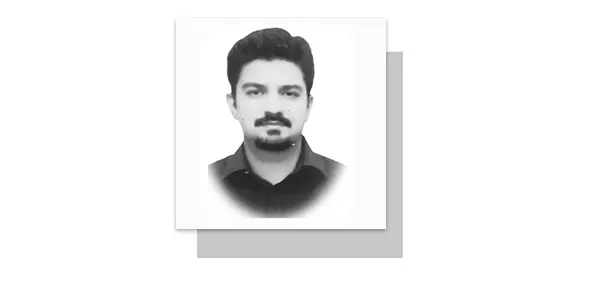SAADAT Hasan Manto’s works, written decades ago, remain hauntingly relevant to the Pakistan of today. His essays such as “Sawal Paida Hota Hai” and his satirical letters to “Uncle Sam” were not just commentary on the world he inhabited but also an unsettling forecast of the struggles we continue to face in 2025. Manto, with his unflinching honesty and piercing wit, laid bare the hypocrisies, contradictions and social injustices that plagued his time. It is a sobering realization that many of those same issues remain entrenched in our society.
Manto foresaw a Pakistan grappling with the duality of its identity. His critique of societal hypocrisy the chasm between outward religiosity and private moral failings is as incisive today as it was then. We remain a nation eager to dictate religious and moral codes, often in ways that suffocate progress and suppress individuality. Simultaneously, we turn a blind eye to systemic injustices, corruption and the exploitation of the vulnerable. The contradictions Manto highlighted in the 20th century have not just persisted but, in many ways, deepened.
One of Manto’s most enduring themes was his fearless examination of gender inequality. He portrayed women not as monolithic symbols of honour or shame, but as complex individuals caught in a web of societal expectations. Today, as then, Pakistan continues to obsess over women’s clothing, behaviour and role, using these as battlegrounds to assert moral authority. From drawing rooms to social media, debates over what women should or should not do dominate our discourse, leaving little room for addressing the structural barriers that prevent them from realizing their true potential. Manto’s women were survivors, rebels and human beings, not passive recipients of societal judgment. Yet, in 2025, we continue to define women’s worth through narrow, patriarchal lenses.
Manto’s letters to “Uncle Sam”, though satirical, were a prescient critique of global politics and the enduring influence of Western powers on developing nations. He mocked the dependence of countries like Pakistan on foreign aid and the cultural invasion that followed. Decades later, the themes of economic reliance and cultural mimicry resonate strongly. Our reliance on external powers; be it for financial bailouts or validation, remains a cornerstone of national policy.
At the same time, we continue to grapple with the import of Western cultural norms, often at the expense of introspection and authentic progress. Manto would have seen this as the predictable consequence of a society too consumed by appearances and too distracted to cultivate its own identity. Manto’s genius lay in his ability to confront uncomfortable truths without flinching. He did not offer easy solutions or indulge in moral grandstanding. Instead, he held up a mirror to society, forcing his readers to confront their own complicity in the injustices he described.
His works challenge us even now to move beyond performative outrage and shallow debates and to address the deeper issues that continue to plague us. Whether it is our inability to protect the rights of marginalized groups, our obsession with controlling women, or our failure to establish a just and equitable society, the questions Manto raised remain unanswered.
Revisiting Manto in 2025 is both an homage and a lament. It is a recognition of his unparalleled brilliance and his profound understanding of human nature. In many ways, Manto was a genius on par with literary greats like Dostoevsky or Nietzsche, delving deeply into the human psyche and exposing its darkest corners with unrelenting precision. However, unlike these giants of literature, Manto never received the international recognition he truly deserved. His works remain underappreciated on the global stage, despite their universal relevance and extraordinary insight into human behavior.
The Pakistan Manto wrote about is, in many ways, the Pakistan we still inhabit. His words; sharp, provocative and deeply human, continue to resonate, not as relics of the past but as urgent calls to action. Manto’s Pakistan demanded introspection and courage; so does ours. The question is whether we are finally ready to listen.
—The writer is Associate Professor, Health Services Academy, Islamabad.
(drahmedabdullah83@gmail.com)










